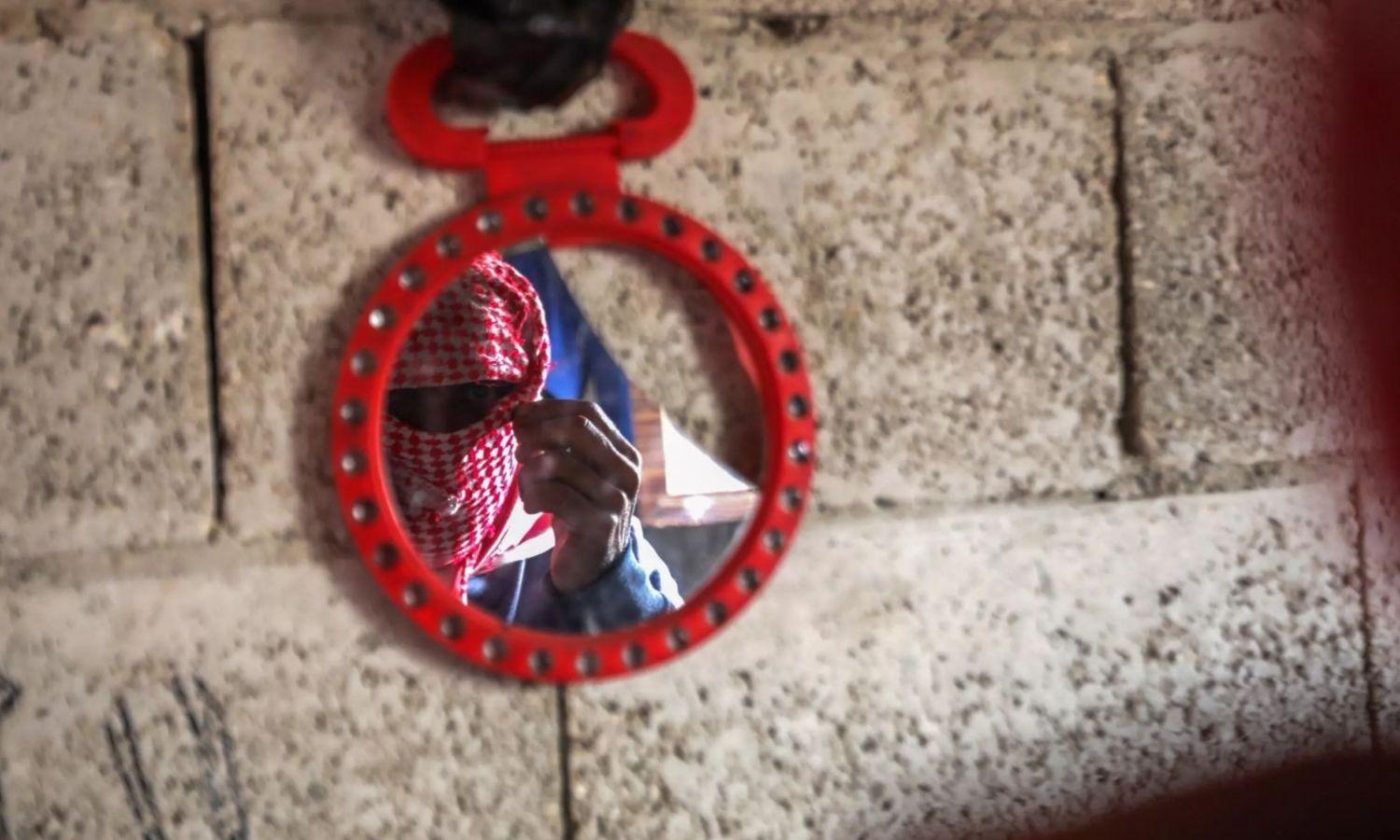



Homs – Orwah al-Mundhir
The narcotic Captagon drug has been widely spread among the youth of the Al-Baath University in the central city of Homs, Syria’s once-leading educational institution that included students from throughout Syria.
The southern and western countryside of the city of Homs is the main stronghold of the Captagon factories in Syria after Lebanon’s powerful Iran-backed Hezbollah militia took control of the border al-Qusayr region and the surrounding areas.
Bashar al-Assad’s much-feared brother Maher, the de facto head of Syria’s elite unit, the 4th Division, is believed to be one of the key heads of Captagon trade, according to reports.
The Division is “deeply involved in the trade, including smugglers, a regional law and order official, a former Syrian intelligence officer, a member of a tribe that smuggles Captagon, and a pharmaceutical industry insider,” a dozen sources told AFP, according to an investigation published on 3 November.
The pills of fenethylline hydrochloride compound are sold in Homs governorate, through shops, to trusted customers who sell and promote them among young people and university students.
Captagon is now Syria’s most valuable export product and a key source of income for the regime, which is unable to save the economy through either legal channels or licit trade, according to Carnegie Endowment for International Peace.
The Captagon pills have been nicknamed “Captain Majed” (Captain Tsubasa, the Japanese animated series) for the ease of promoting them among the students inside the campus of Al-Baath University.
The Student Union branch and the university branch of the Al-Baath Party ignore the spread of the pills inside the campus and university dormitory.
A 19-year-old student at the Faculty of Architecture, who declined to be named for security reasons, told Enab Baladi that the “Captain Majed” code is considered the password among drug users to obtain the product.
He explained that the Captagon trade is widely spread among students, as it is promoted as an additional income so that the student can work and study at the same time.
The student added that the security authorities on the university campus, led by the National Union and the Al-Baath Party’s branch, ignore the issue of promoting and selling drug pills, pointing out that the most prominent drug users among the students are the organizers of the Al-Baath Brigades.
One pill sells for 2000 (approximately 40 US cents), and promoters do not sell more than five pills at once to a customer, according to the student.
University students in Syria suffer from a bad economic reality due to the deteriorating living conditions, which forces them to work and study at the same time and makes them resort to using drug pills to increase their activity.
Osama, 20, a student at the Faculty of Mechanical Engineering and a Captagon user, told Enab Baladi that he takes pills to gain activity in order to balance his ability to study and work after work ends.
And he stressed that he does not take more than two pills per week in order to ensure his health and divides one pill into two parts to maintain the continuity of activity.
Osama pointed out that he knows the dangers of Captagon, but he has no choice, as he cannot work actively after university hours, and he expressed his desire to quit using drugs after this stage of his life ends according to him.
The Captagon trade in the central Homs region is considered one of the most dangerous and profitable businesses as well. Work in networks is divided into three levels: buying, transporting, and selling.
While one group specializes in buying it from suppliers, the other group works to transfer it from one region to another, and the latter handles the issue of promotion and sale.
|
Captagon is a brand name for the drug compound fenethylline hydrochloride that was originally produced in West Germany in the 1960s as a treatment for attention deficit disorder, narcolepsy, and depression. The drug was banned in the 1980s because of its addictive effects, but soon after, counterfeit Captagon pills began to appear in various countries in the Middle East. Carnegie Endowment for International Peace |
Khaled al-Homsi, pseudonym, Captagon dealer, told Enab Baladi that the task of transporting Captagon is considered one of the most dangerous tasks, as the transportation groups are the most vulnerable to exposure, explaining that the Narcotics Control Division arrests some groups from time to time.
Al-Homsi added that transportation for external export is handled by the 4th Division, and the “Narcotics Control” cannot intercept or arrest its members, while the promoters’ trade is limited to the local level only.
The profit of one pill sometimes exceeds 3000 SYP if the sale is retail (less than 100 pills), and in the case of wholesale sales (more than 100 pills), the profits are between 1000 and 1500 SYP for each pill, according to al-Homsi.
An investigation published by the Agence France Presse (AFP) on 3 November revealed that Captagon is now by far Syria’s biggest export, dwarfing all its legal exports put together.
AFP interviewed smugglers, a fixer who puts together multi-million dollar deals, and 30 serving and former law enforcement officers from Syria and beyond, as well as diplomats and drug experts in a bid to grasp the scope of the phenomenon.
“Syria is in dire need of foreign currency, and this industry is capable of filling the treasury through a shadow economy from importing raw materials to manufacturing and finally exporting,” the pills, an ex-Syrian government adviser now outside the country, told AFP.
if you think the article contain wrong information or you have additional details Send Correction